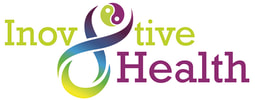|
29/8/2025 0 Comments 5 Tips for a Better Night’s SleepOctober 8, 2021
1. Stick to a regular Sleep Routine Following the same sleep pattern everyday (including weekends) helps the body naturally slip into a better sleep/wake cycle. This means going to bed and waking up at the same time each and every day. As tempting as it may seem, 'catch up' sleeps and naps during the day can affect your sleep hormones. Melatonin and Cortisol control our circadian rhythm (sleep/wake cycle). Cortisol (our stress hormone) and Melatonin work like a seesaw when one is high the other must be low hence why managing stress is another great way to help sleep better. Doing things to set up sleepy time is also advised like, stretches, meditation and/or breathing practices along with incorporating a calming cup of tea like MeVa Sleep or MeVa Summer Dreams 2. Limit caffeine Limiting (or eliminating) caffeine is crucial in helping with sleep. Caffeine products are known as stimulants and are designed to stimulate our bodies 'awake' processes, but this means increasing Cortisol and as we have seen increased Cortisol means decreased Melatonin (our sleep hormone) Caffeine products (coffee, black/green tea, colas, and chocolate) stick around in your system for around 4-6 hours meaning a long stimulating effect, keeping these products to earlier in the day (or removing altogether) will be beneficial. You could also try replacing them with Herbal Teas so that you still get a nice warm cup of invigorating, without the stimulating high. 3. Get some Sun Getting out into the Sun gives you that warm fuzzy feeling, that’s because the Sun wakes up your body (slowly and naturally increasing cortisol) Getting early morning sunlight helps to regulate the Circadian Rhythm. The Sun helps us to produce Vitamin D, which is a precursor to Serotonin (our feel-good hormone). Serotonin then goes on to produce Melatonin, meaning, without adequate sunlight we fail to produce enough of these hormones to have an effective, quality sleep. So, you can see why getting some Sun in the morning is very important. 4. Exercise So, you've just seen how Serotonin has an impact in helping regulate the sleep/wake cycle, well guess what... Exercise is another activity that helps to increase Serotonin and with Serotonin comes Melatonin, our wonderful sleep hormone. Exercising for at least 30 minutes a day is enough to achieve this but be careful as exercising too close to your bedtime can actually keep you awake. This is because exercise can induce Endorphins which makes us feel good and invigorated, not what you need right before bed. (each person will react differently but a rule of thumb is to allow at least 2 hours before bed to allow a 'wash-out' period for the brain to down-regulate) 5. Create a sleep sanctuary Creating a sleep sanctuary helps the brain register a calm relaxing environment which allows the body to relax. Some good ways to achieve this is by: *Having soft luxurious sheets on the bed. *Having a cool room, which allows for a higher production of melatonin. *Not having a workspace or technology in the bedroom (this includes work/study notes and yes, your phone or computer) *The bedroom is for relaxing, sleeping and love making, and bringing in your work/school day can interfere with this, potentially raising cortisol, thus reducing melatonin. CONCLUSION Starting you day right and keeping it as a regular routine is imperative to a good nights sleep. Waking up, breathing, stretching, hydrating, getting out into direct sunlight and exercising are crucial in the way our hormones control our Circadian Rhythm. Don't forget to minimise caffeine (and alcohol for that matter) as well as exercise close to bedtime hours Also keeping to a regular schedule of going to sleep and getting up in conjunction with a sleep ritual helps the brain and body understand that it's time for bed. We would love to know what habits/rituals you do to help with your sleep **DISCLAIMER - Information provided on this site is for educational use only and is not intended as medical advice. If you have any serious health concerns, you should always check with your health care practitioner.
0 Comments
29/8/2025 0 Comments SAY GOODBYE TO BRAIN FOG!Herbal Teas for Cognitive Enhancement
It's clear that the brain plays a crucial role in guiding all aspects of our body. From our heart rate and emotions to our breathing and movements but also the control center for our thoughts, memory, and actions. Retaining and recalling information is an important aspect of memory. The ability to do so efficiently can be impacted by various changes in the brain, especially after we have been sick with a virus, if we are low in essential nutrients or even as we age. Conditions like Brain Fog, memory recall and just forgetting where your keys are can be very problematic for many people. Brain fog too can be a contestant battle especially when you are under stress. Eating high-quality foods containing vitamins, minerals, and antioxidants help to nourish the brain and protect it from cell damage. The best diet includes vegetables, fish, fruits, and lean meats PLUS water for hydration. Another effective method for boosting memory and protecting the brain is by incorporating herbal teas tonics into your routine. Certain medicinal herbs contain antioxidants that can help combat cognitive decline, brain fog, and improve brain connections helping memory and optimize brain function. Brain Herbs are also known as nootropic herbs and these herbs help cognitive function and promote overall well-being. Focus and Memory is a specially formulated herbal tea can help enhance your brainpower because it is crafted from a combination of ingredients such as rosehips, gingko, gotu kola, moringa, bacopa, and rosemary. It’s a quick and easy way to help boost your brain power. See you later Brain Fog! What Herbs are used in the Focus and Memory Tea? Ginkgo Ginkgo, is a TCM herb well-known for its ability to improve circulation and oxygen flow to the brain and this leads to enhanced cognitive function and memory. Science has then backed this up and some studies have suggested that ginkgo has a positive effect on cognitive function, particularly in older adults. A study from 2019 has shown the herb’s ability to protect nerve cells, and this positive effect has been studied in Alzheimer’s and dementia patients with enormously powerful results (1) Another study published in the journal "Psychopharmacology" found that ginkgo improved memory and attention in healthy young adults (2). The two compounds that are thought to be responsible for these effects are flavonoids and terpenoids which are found in the leaves of this herb. This makes Ginkgo Biloba an excellent tea for memory retention. Gotu Kola Gotu Kola, a herb used in Ayurvedic medicine and has been found to help support and improve brain function. Its properties stimulate the release of Brain derived nootropic factor that promotes cell growth in the brain, leading to increased neuroplasticity. The compounds in Gotu Kola also improve memory by increasing blood flow, collagen production, and reducing oxidative stress. Research has demonstrated that a combination of folate and Gotu Kola improved cognitive function and mental clarity after a stroke (3). So of course this herb makes it into the Brain Tea! Bacopa Bacopa monnieri, also known as Bacopa or Brahmi, is an herb that has been used in Ayurvedic medicine for centuries to enhance cognitive function and memory. Research on Bacopa and brain health has shown that it may improve memory, attention, and cognitive performance. The active compounds in Bacopa, called bacosides, are believed to play a role in this effect by promoting the growth and repair of nerve cells in the brain, and by increasing the levels of certain neurotransmitters that are important for cognitive function. In addition, several clinical studies have been conducted to evaluate the effectiveness of Bacopa monnieri in improving cognitive function, memory recall and attention (4). Moringa Moringa, also known as the "miracle tree," has been traditionally used in brain health remedies as the Moringa leaves contain high levels of antioxidants. These antioxidants help to protect the brain from damage caused by free radicals, which can contribute to the development of neurodegenerative diseases. In addition, Moringa leaves also contain compounds called flavonoids that have been shown to have anti-inflammatory and neuroprotective effects. Moringa also helps improve your energy and supports your immune system (5). Rosemary: The Brain-Boosting Herb Rosemary has been used for centuries for its medicinal properties. But did you know that rosemary can also benefit your brain health? Rosemary contains antioxidants and compounds called terpenoids, which may help protect the brain from damage caused by free radicals and inflammation. These compounds work together to promote brain health and improve cognitive function. One of the most promising benefits of rosemary is its ability to increase the levels of a protein called brain-derived neurotrophic factor (BDNF). BDNF is important for the growth and survival of nerve cells in the brain and is associated with cognitive function and memory. Studies have shown that rosemary can increase levels of BDNF in the hippocampus, an area of the brain involved in memory and learning (6) So it's evident that our brain plays a vital role in guiding all aspects of our body. Keeping our brain healthy is crucial, and incorporating a balanced diet rich in vitamins, minerals, and antioxidants is an essential aspect of this. Herbal teas, specifically formulated to boost brain power, can provide an added layer of protection for our brain. Gingko, Gotu Kola, Bacopa, and Moringa are some of the herbs that have been traditionally used in brain teas and have been backed by scientific research to have positive effects on cognitive function and memory. Adding a brain tea tonic to your daily routine may be a simple and effective way to improve your brain health, combat cognitive decline, and say goodbye to brain fog. Phew! Who knew these herbs had such powerful actions? Drinking a Brain Tea Tonic with these nootropic herbs in it is an easy way take advantage of its potential brain-boosting benefits. But it's not all about the benefits, they taste great too. The natural ingredients used in MeVa Co's Focus and Memory Tea creates a beautiful flavor and aroma that can be enjoyed on its own or with a touch of honey or lemon. Best of all these herbs are all caffeine free. |
IS PAIN ALL IN YOUR HEAD
|
Search by typing & pressing enter



 RSS Feed
RSS Feed